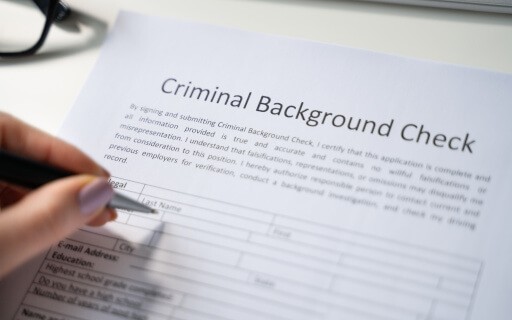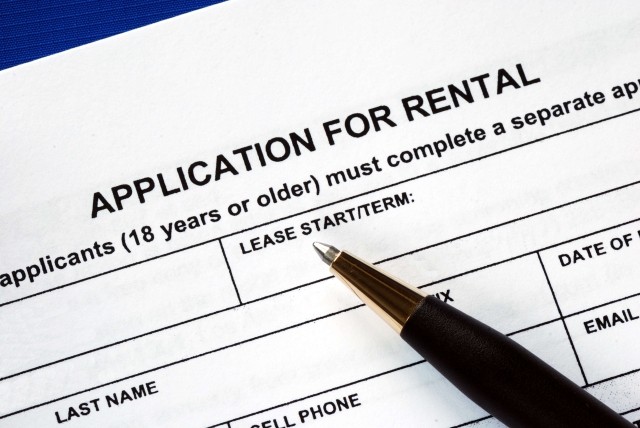
A thorough background check and tenant screening are your first line of defense against troublesome renters and scammers. Being informed about applicants can help you avoid future rent problems and minimize potential stress. But you may be wondering how you can get the most out of your screenings to ensure you find the best tenants. Below, you will find tips on how to make the most of your tenant screenings.
Tips to Avoid Bad Tenants
Even with the most comprehensive background check, you could still end up with a not-so-great tenant. There's only so much a background check can do, but there is a silver lining: plenty of high-quality tenants are looking for a place to call home, too. While there is no foolproof solution to catch all the red flags on a rental application, below are some tips to ensure you find the best tenant for you and your property.
Verify their income
When verifying an applicant's income, be sure to ask for at least three paystubs, and it's a good rule to make sure a potential tenant makes three times the rent. You can also ask for other documents, such as bank statements, W-2 income statement, or tax returns.
Contact their references
Typically, on an application, you can ask for references that can speak to the applicant's work ethic and responsibility. Be sure to ask for references that are not related to the applicant to receive an unbiased response.
Do not ignore the red flags
Below is a list of common red flags that you should stay on the lookout for:
- Criminal History
- Low Credit Score
- False References and Contact Information
- All Their References are Relatives
- History of Evictions
- Over-Denial of Background Check Results
- History of Frequent Moving
- Offer of Advanced Payment
- Rush to Move In
- Lying About Income
According to the Fair Housing Act, a landlord cannot state that any criminal convictions will be denied since this is considered discriminatory. However, landlords can legally deny an applicant based on their criminal record if their past crime jeopardizes the safety of their property and other tenants. As a landlord, you should always consider applicants on a case-by-case basis and evaluate the severity of the crime.
Applicants have low credit scores for various reasons, whether it's missing rent, a credit card payment, or student loan debt. A low credit score can give you a general idea of how a renter spends their money and their level of responsibility. This is why credit checks for tenants are so important.
If an applicant provides fake references or inaccurate contact information, they may be trying to hide something in their rental history. As a landlord or property manager, references are your way of verifying a candidate's viability as a high-quality candidate; this is someone who pays their rent on time, follows the rules, doesn't disturb others, and takes care of the rental unit. If an applicant refuses to provide relevant references and accurate contact numbers, consider choosing someone else.
Family members do not make the best references because relatives are usually biased. For example, if an applicant uses their mother and uncle as their references, then expect raving reviews that may inaccurately represent who the person is as a tenant. You want contacts willing to provide objective and accurate information about the applicant, like their past landlord or employer. In this situation, kindly ask your applicant to provide non-related references.
Sometimes, a renter may find themselves in an unpleasant situation, coming face to face with an eviction notice at their front door. From breaking lease rules to defaulting on rent, a potential tenant can get evicted for many reasons. While you may be sympathetic to their situation, a history of evictions is problematic, but go ahead and learn the reason behind their removal and then use that information to help guide your decision.
A confident renter should have no issues with their background check results. But if an applicant continuously refutes the information in the screening report, that could be a troubling sign. It is within a renter's right to question the validity of their background check results if something seems out of place. However, a tenant trying to discard the report or saying it is entirely invalid means they could be trying to hide something important from you.
From military deployment to job relocations, there are several legitimate reasons why a tenant might move around often. However, a tenant constantly moving without plausible cause indicates instability. Therefore, you should ask the tenant why they have moved around to make the best decision.
It's unusual if a tenant tries to offer you an advanced rent payment before you thoroughly review their entire application. Unless you ask for early pay, be wary of an applicant trying to skip a background check since they might have something they don't want you to see. Politely decline their request and continue with the screening process as usual.
Remain cautious if you have an applicant trying to rush the move-in process. This behavior could indicate a renter is trying to run away from trouble with their previous property owner or landlord. However, there are legitimate reasons why applicants might want to move in quickly, such as domestic safety concerns or the risk of homelessness. Before making any hasty decisions, review all the facts to ensure you make the most informed choice possible. For your protection, consider enforcing a one-week screening/background check policy for all applications.
For a prospective tenant to afford your rental, industry standards suggest they make three times more than the rent. An applicant might know about this rule of thumb and lie about their income because they want to rent your property. Try to avoid these tenants, as it indicates their ethics and trustworthiness. Do your due diligence by asking for paystubs to verify their income to ensure you are not misled.
Screen Tenants with Apartments.com
When you screen with Apartments.com, you can find all the information you need about an applicant. The comprehensive background and credit check on a tenant includes eviction records, criminal history, debt, payment history, employment, and more. All the reports and applications will show up on your dashboard so you can make an informed decision on who to rent to.
Frequently Asked Questions
What can I do if a good tenant turns into a difficult tenant?
Novice and experienced landlords may eventually have to deal with a good tenant who starts causing trouble. If your high-quality tenant suddenly becomes difficult, communicate with them about the issues and warn them to change their actions or behavior. If the problems persist after you have exhausted your other options, consider evicting them. Always remain receptive to your tenant's concerns and compromise where possible. But being a landlord is a business, so do what is necessary to maintain the stability of your rental property.
How do you deal with a tenant who doesn’t clean?
Once the agreement is finalized, you cannot do much to interfere with your tenant's way of life, even if they are a bit messy. Here are some tips to help you deal with a messy tenant on the front end:
- Consider including a maid clause in the lease agreement, allowing you to hire a maid to clean the rental property if the tenant does not keep the rental clean.
- Define the cleaning expectations within the lease agreement and outline the fines a tenant may face if they do not keep your property sufficiently clean
How do you tell someone you don't want to rent to them?
Whether through email or letter, respectfully let the applicant know why they did not qualify. While there are local and state laws dictating when you can legally deny someone's application, be specific about the reasons, such as:
- Background check issues
- Screening issues
- Credit score issues
- Lack of income
It's essential to have a trustworthy tenant screening process and follow fair housing laws to avoid discrimination. Some red flags may have valid explanations, so it's crucial to ask follow-up questions and conduct thorough background checks to make informed decisions when selecting tenants.
How do I run a background check on a tenant?
Apartments.com makes tenant screening easy. Get background and credit checks when renters apply so you know you are renting to a reliable tenant. The reports include eviction records, criminal history, reported debt, payment history, and more so you can make an informed decision.
This article was originally published on Jun 27, 2022.











